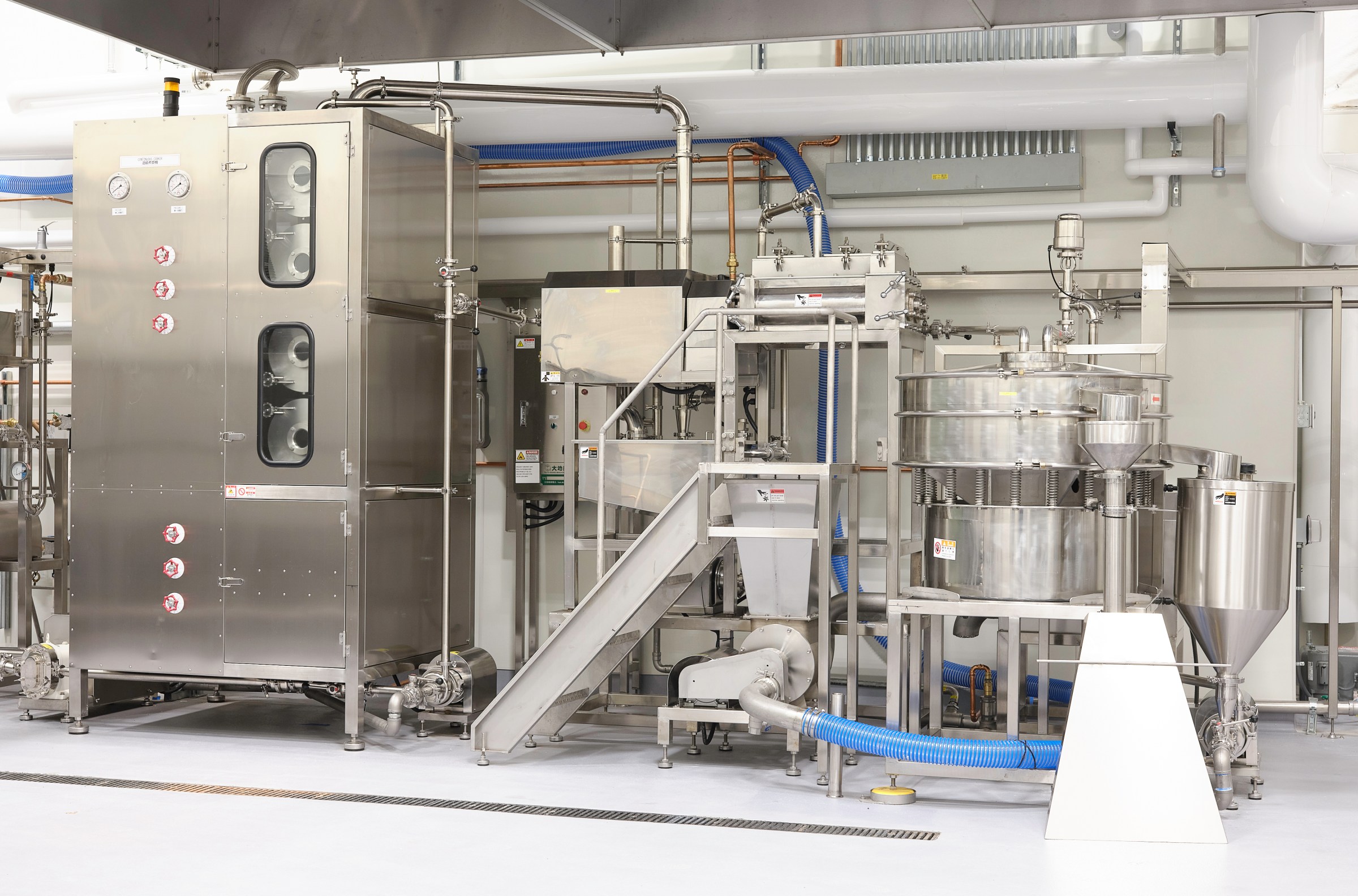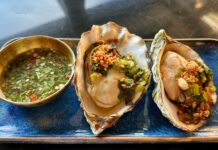You can ask acclaimed chef Makini Howell to make roasted yam–ginger soup with toasted pistachio dust. You can ask her to make an oyster mushroom po’ boy sandwich. You can even ask her to whip up some of her iconic Mac & Yease.
But please don’t ask her to cook chicken.
“I have no idea,” Howell said of her recent chicken-cooking discoveries while preparing a tofu chorizo crumble taco at the cooking station in her Georgetown tofu factory. “It’s way harder to make tasty tofu than it is to make chicken. I just found that out. I was like, ‘That’s it? It’s done? Oh.’”
Howell’s recent foray into the world of chicken cookery came courtesy of her desire to learn more about what makes it so delicious to meat-eaters and omnivores, something she’s never needed to understand in her personal life or culinary career so far.
A lifelong vegan — her mother is also a vegan restaurateur —, Howell is best known for Plum Bistro and its more casual offshoot, Plum Chopped, which brought creative and flavorful vegan food to Capitol Hill and acted as a cornerstone for a burgeoning vegan empire that at its height included cookbooks, a bakery, a burger truck, a dessert shop, and a world tour as Stevie Wonder’s personal chef.
In early 2025, she announced that she was walking away from the restaurant business, shuttering Plum Bistro and Plum Chopped to give her full attention to her new tofu company, Makini’s.
“The mission is authentic, good plant-based protein,” says Howell. “It’s made inside the city of Seattle. It’s hyperlocal. Can’t get more local unless you have chickens in your backyard.”
There are sound financial reasons to enter the plant-based protein market, which was worth $8.1 billion in 2024 based on retail sales data. Making tofu is also a way for Howell to continue her mission of making vegan food so flavorful that even omnivores will crave it.
Makini’s isn’t trying to follow in the footsteps of companies like Impossible Foods, which sells products that attempt to replicate meat.
“We’re trying to make the most delicious tofu or the most delicious plant-based protein we can, but we’re not trying to be a burger,” says Ann Altman, Makini’s head of sales and marketing. “We’re not trying to be chicken. We’re not trying to be pork. We’re trying to be totally delicious and make you not miss the other thing, but we’re not trying to be the other thing.”
To accomplish that goal, Howell quite literally scoured the globe to find the equipment she needed. To find a semi-automatic tofu machine that met her specific demands, Howell sourced it from Taiwan, where it was shipped in pieces and took several months to set up.
“We’ve been making tofu since January,” said Altman as she and Howell walked me through their Rube Goldberg-esque tofu-making setup that begins with Charlie’s Produce-sourced organic and non-GMO soybeans arriving in tubs.
After a cooking process that includes soaking, swooshing, and slurry-making, the beans become a milk that could be the base for many products beyond tofu (“Makini has a lot of ideas, but right now we’re in the tofu phase,” says Altman). That milk coagulates, gets batched, and finally firms up. Industrial-strength pressers ensure that the tofu doesn’t need to be pressed at home (the bane of many vegetarians’ and vegans’ existences). From there, it’s cut into blocks, where it can remain as-is (what they’re calling “naked”) or get packed with some serious flavor.
“Bad tofu can happen to good people,” says Howell. “We want to make sure it’s good tofu. We want to make sure our product is consistent. We want to make sure our product is flavorful. And that it’s something that when the consumer tries it, they’re like, ‘Oh, okay, I could be vegan if it tasted like this.’”
While the seven flavors on Makini’s website “telegraphs our dreams, not our right now,” per Altman, they are presently making shiitake-ginger, smoked, tofustrami, and the chorizo crumbles, the latter of which are available as part of Evergreen’s Hot Grill Summer salad.
All four products were also recently introduced at PCC Community Markets, where they’re being incorporated into various hot bar, cold bar, and pre-made products, including the iconic Steph’s Tofu dish, as well as being sold directly.
The grocery chain jumped at the chance to work with Howell.
“She’s just a wonderful person,” says Tracy Marik, who oversees several fresh food departments at PCC. “She’s passionate about food, she’s passionate about people, she embodies the values that PCC has around sustainability.”
As for why their product is available in such limited spots, it’s because Makini’s is thinking much larger than farmers’ markets and pop-ups.
“Makini has big aspirations, and we are at the very, very beginning,” says Altman. “It’s a new-to-world product. Yes, it’s tofu, but really what it is is delicious, flavored, clean protein.”
How does it taste? That aforementioned chorizo crumble taco delivered on Howell’s promise to pack every bite with flavor. It may not have been actual meat, but as the red-stained oil dripped from the tortilla and the chewy, chili-powder-infused crumbles danced on my tongue, I thought that any meat-eater would be hard-pressed to find fault with the presentation or product.
“That’s something that my dad understood,” Howell said. “He didn’t stop eating meat because he didn’t like meat. He stopped eating meat because he had another mission… He used to eat meat, and then he said, ‘Hey, let’s see if we can do this with tofu.”







